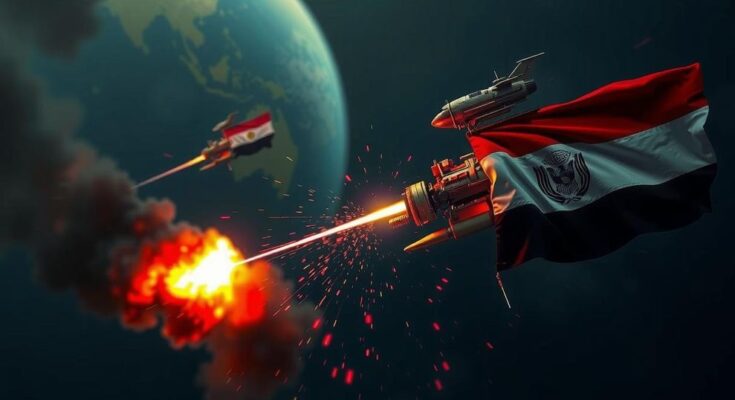Israeli forces continue airstrikes in Gaza as Fatah and Hamas engage in talks in Egypt regarding humanitarian aid and reopening the Rafah border. French Defence Minister Sébastien Lecornu is expected to discuss ceasefire violations in Lebanon. Concerns over war crimes have escalated, with Human Rights Watch calling for support for the International Criminal Court’s investigations. The situation remains dire in Gaza, with medical professionals sharing harrowing accounts, while regional dynamics become increasingly strained as Houthis launch attacks in solidarity with the Palestinians.
Israeli military operations in Gaza persist as Hamas and Fatah engage in discussions in Egypt. Recent allegations from Gaza’s health officials assert that Israeli forces are employing weapons capable of vaporizing victims. Concurrently, French Defence Minister Sébastien Lecornu is anticipated to visit Beirut, according to Lebanese media, to address the renewed tensions and violations stemming from the ceasefire with Hezbollah. He plans to meet with key Lebanese officials to explore implementations of the truce. Amidst these developments, a report from Human Rights Watch emphasized the necessity of ongoing investigations by the International Criminal Court regarding war crimes. While Israeli forces continue to attack various locations within Gaza, Fatah’s discussions in Cairo aim to facilitate humanitarian aid and the reopening of the Rafah crossing, crucial for Gaza’s reconstruction efforts. Fatah officials stress the urgency of ending hostilities and expediting aid during their talks with Hamas, seeking a collaborative approach to manage Palestine’s borders. Meanwhile, from Yemen, the Houthis assert their solidarity with Palestinians by targeting vessels associated with Israel, further complicating regional dynamics. The lamentable situation unfolds as medical professionals recount the dire humanitarian conditions in Gaza, highlighting the emotional toll of the crisis upon witnesses on international platforms.
The ongoing Israeli-Palestinian conflict has led to a cycle of violence and complex political interactions among Palestinian factions, alongside international entanglements. The hostilities in Gaza have intensified, leading to severe humanitarian repercussions and prompting discussions regarding peace, ceasefires, and accountability for war crimes. The historical context highlights longstanding tensions dating back to the Nakba, where numerous Palestinian populations were displaced, framing the ongoing struggle for rights and recognition in the region. Furthermore, international responses include scrutiny and diplomatic engagements aimed at mitigating the crisis and holding violators accountable for actions taken during armed conflicts. This backdrop is critical in understanding the current atmosphere of talks and military actions.
The continuous military actions by Israel against Gaza, amid talks between Hamas and Fatah in Egypt, illustrate the complex interplay between urgent humanitarian needs and geopolitical maneuvering. The international community’s willing response, as shown by the concerns raised in Human Rights Watch’s statements, reinforces the urgency for accountability and justice in the face of war crimes. Notably, the involvement of regional players, such as Lebanon and Yemen, further complicates efforts towards peace amidst a highly volatile landscape. Ultimately, the unfolding events underline the critical need for sustained dialogue and resolutions that prioritize human rights and peaceful coexistence in the region.
Original Source: www.aljazeera.com




